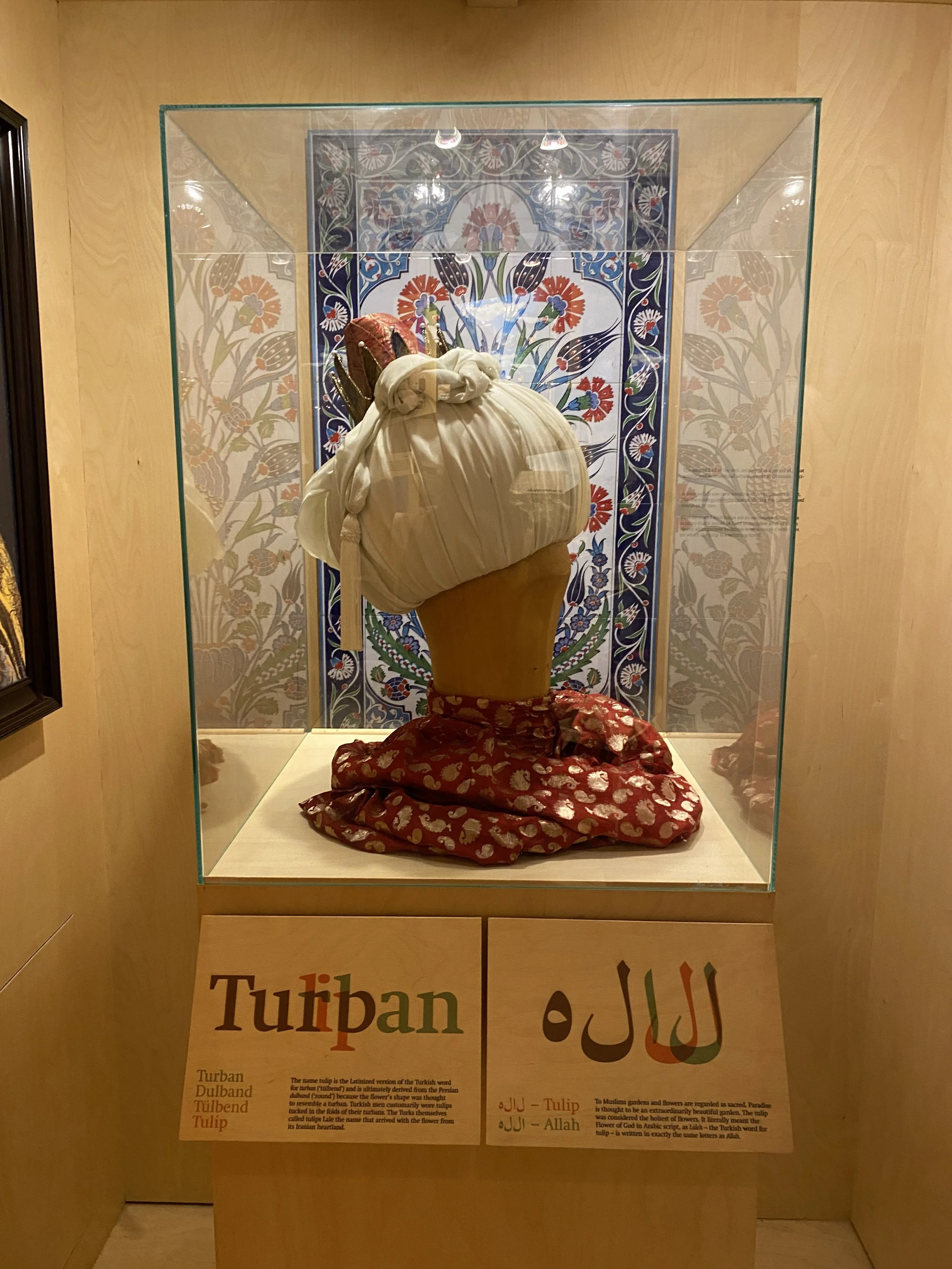Tidbits of Tulip history- origin of a name
Tulips: those delicate, colorful blossoms that grace gardens, parks, and floral arrangements worldwide. Have you ever wondered about the origin of their name? A fascinating story lies behind the seemingly simple moniker.
About 60% of all known wild tulips originate from the mountainous region of central Asia and the Middle East. These wild tulips made their way onto trade routes and into the hands of the Turkish people. As early as 1150 AD tulips became an essential part of the Turkish culture- where they would plant them in their gardens- these gardens were meant to be their own symbols of heaven- filled with things that were most precious to people living in a desert.
Traditional Turkish tile featuring tulips
The name "tulip" is said to have its roots in the Persian word "dulband," which means turban. This reference is due to the shape of the flower resembling a turban when in full bloom. The layers of tightly wrapped petals mimic the folds of a turban.
During the peak of the Ottoman Empire's influence in the 16th century, tulips became highly coveted and admired. They were often featured in art, textiles, and gardens. The Ottomans referred to the flower as "tülbent," which means turban in Turkish. Turkish men would customarily tuck tulips into the folds of their turbans.
Turban/ Tulip display in the Amsterdam Tulip Museum. Photo by Karissa Monette
As tulips gained popularity in Europe, particularly in the Netherlands during the Dutch Golden Age, the name evolved into "tulipan" in Dutch, and eventually into "tulip" as we know it today.
So, the next time you admire a bunch of tulips in bloom or receive a bouquet of these vibrant spring flowers, remember their origins in the graceful folds of a turban, and the centuries of admiration and fascination that have shaped their name and legacy. For in the story of the tulip, we find a tale as rich and colorful as the flowers themselves.
Have any questions about the history of the tulip? Let us know in the comments below!
-Karissa


